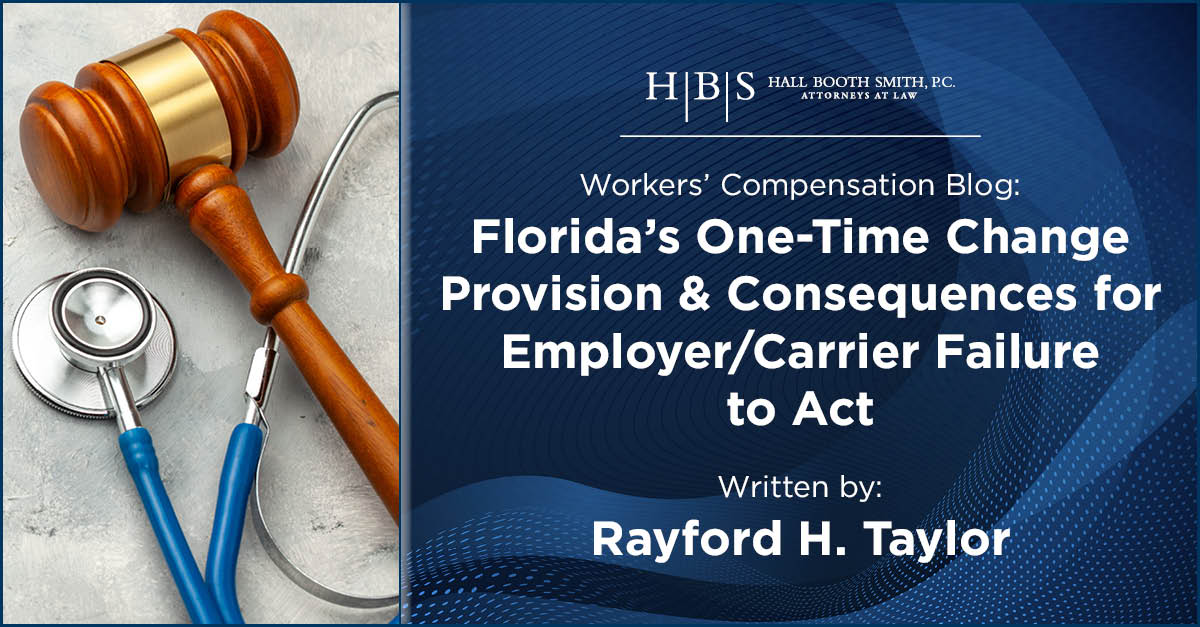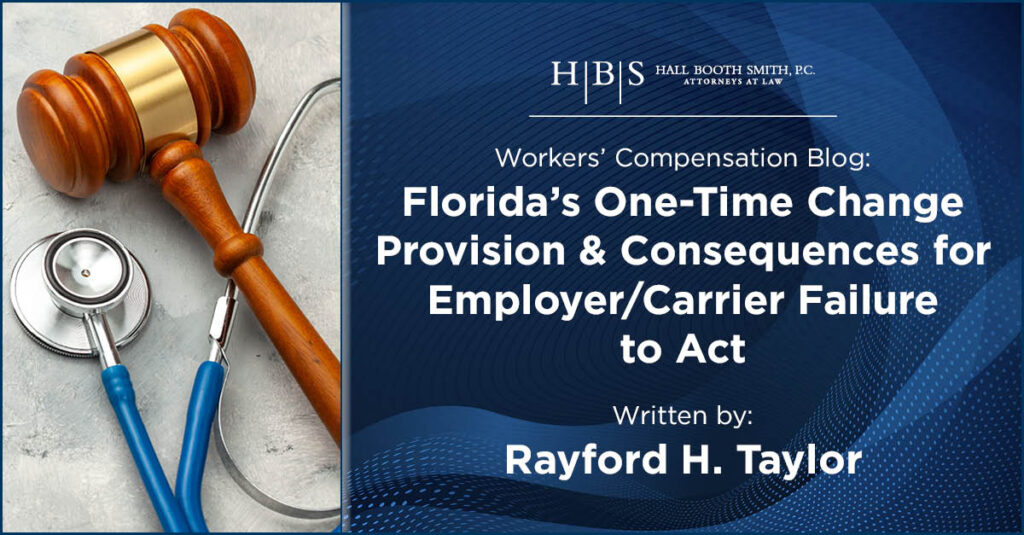
Florida’s One-Time Change Provision & Consequences for Employer/Carrier Failure to Act

Written by: Rayford H. Taylor, Esq.
In Florida, a failure by an employer/carrier to promptly grant an employee’s change of physician deprives the employer/carrier of the right to select the doctor, as once again, Florida courts have been called upon to address the “one-time change” provision of F.S. 440.13(2)(f) in the case of Andrews v. McKim & Creed.1
That statute permits an injured employee to request a one-time change if they are unhappy with the authorized treating physician (ATP). The physician selected to take over the injured employee’s care is chosen by the employer unless they do not act promptly within five days.
Case Background
In this particular case, the injured employee suffered a compensable accident and received medical and indemnity benefits. He exercised his right to request a change of physician under the statute. Under the statute, an employer/carrier has five days to advise an employee whether they will grant the request and subsequently supply the injured employee with the name of the new physician. In this case, the employer/carrier failed to timely respond to the written request.
The employee filed a Petition for Benefits, and the employer/carrier filed a response agreeing to the one-time change and naming an alternate physician. However, the employee did not attend the appointment and subsequently dismissed his first Petition.
The employee filed a second Petition seeking authorization, payment, and scheduling of an appointment for evaluation with a physician that he had selected to be his ATP. The employer/carrier took the position that the one-time change sought by the employee was improper because the employee did not attend the appointment previously scheduled by the employer/carrier.
At trial, the employee argued the employer/carrier forfeited its right to select the one-time physician when it failed to timely respond to the first request. The employer/carrier argued that voluntary dismissal of the first Petition waived or extinguished his right of selection and that the filing of a second Petition equated to a new request for a one-time change to which it timely responded.
The Judge of Compensation Claims (JCC) agreed with the employer/carrier, and denied the injured employee’s request for authorization and payment of the medical bills for the alternate physician.
Appeals Court Dismissal
The First District Court of Appeal reversed the JCC’s decision, ruling the voluntary dismissal of the first Petition did not automatically extinguish the employee’s request for an alternate physician and did not waive the request.
Since the employer/carrier had previously received a written request, then the employee did all that was necessary to secure a new physician. And since the employer/carrier did not timely respond and provide the benefit, it was held to have lost its ability to select the alternate physician.
Conclusions
This particular ruling reflects a further development of the status of the case law since the Court decided the case of City of Bartow v. Flores2 and subsequent cases interpreting various factual patterns in the context of how the statute should be implemented.
Overall, the case law reiterates that an employer/carrier must timely act to respond to an injured employee’s request for an alternate physician. Otherwise, the employer/carrier loses the right to select that physician, the physician selected by the injured worker becomes the ATP, and the employer/carrier becomes responsible for paying for that physician’s treatment.
For more information on this case, or if you have other workers’ compensation questions regarding Florida and/or Georgia, please contact Rayford H. Taylor directly at (404) 954-6949 or rtaylor@hallboothsmith.com.
References
1) ____ So.3d ____, 2023WL1430293, 1D21-427 (Fla. 1st DCA Feb. 1, 2023)
2) 301 So.2d 1091 (Fla. 1st DCA 2020)
Disclaimer
This material is provided for informational purposes only. It is not intended to constitute legal advice nor does it create a client-lawyer relationship between Hall Booth Smith, P.C. and any recipient. Recipients should consult with counsel before taking any actions based on the information contained within this material. This material may be considered attorney advertising in some jurisdictions. Prior results do not guarantee a similar outcome.


Leave a comment
You must be logged in to post a comment.